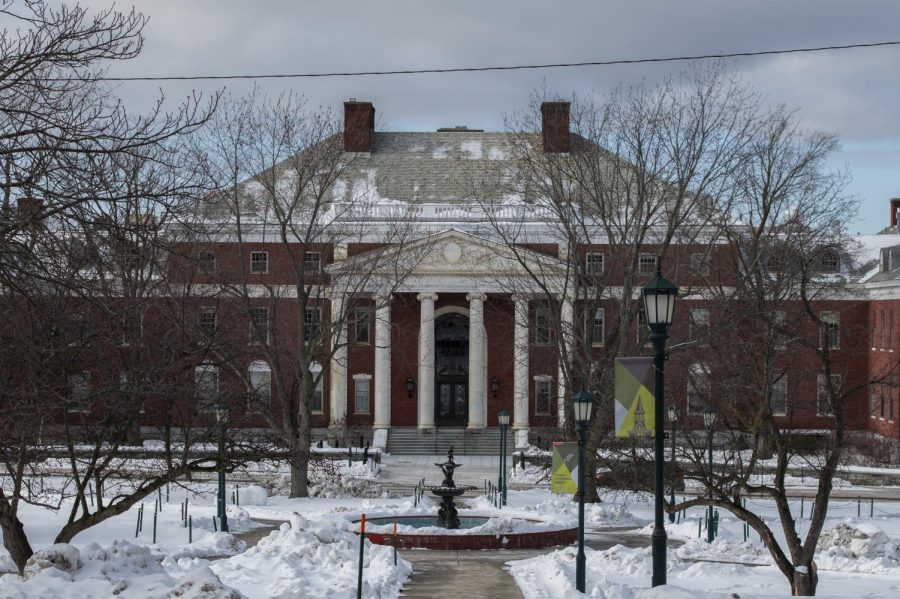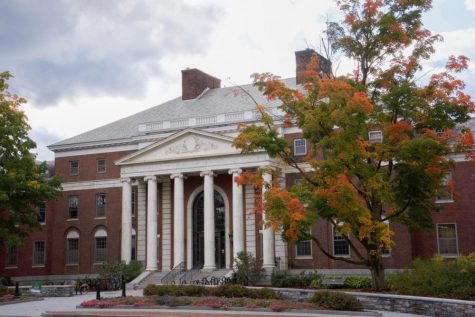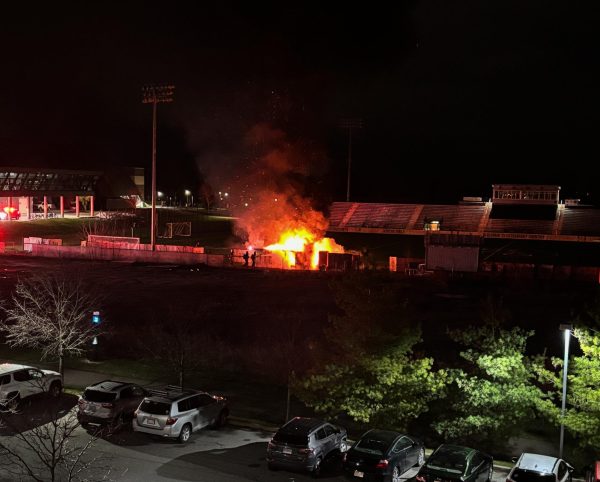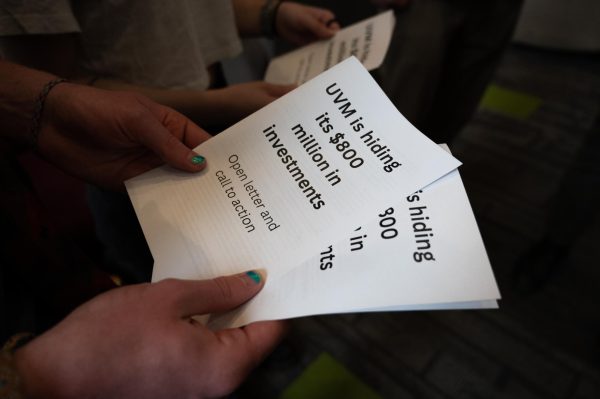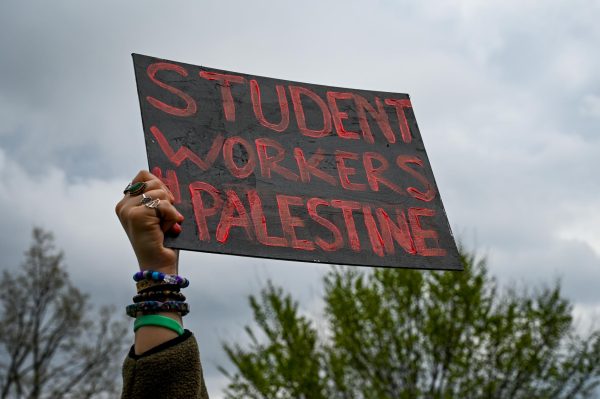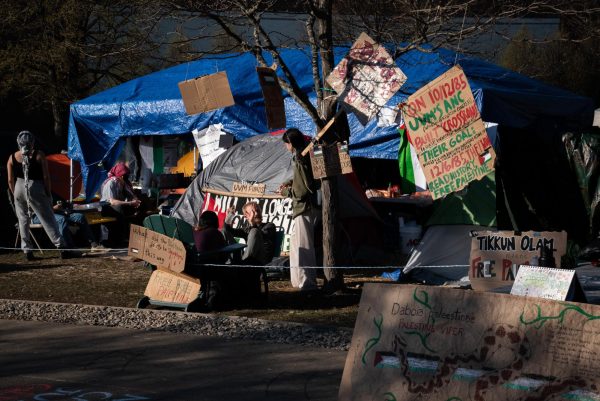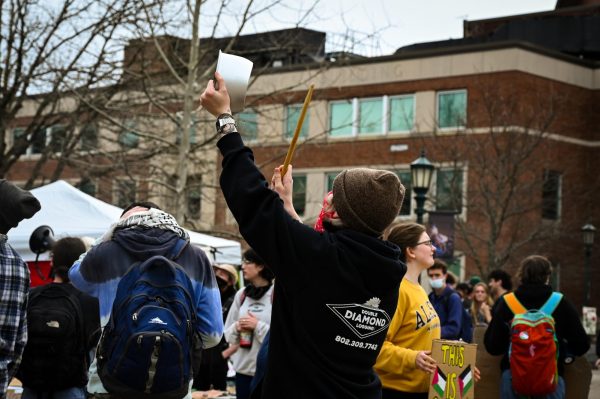Deans opt not to push for promised diversity training in faculty contract negotiations
The Waterman building stands across the street from UVM’s central campus Jan. 28. The Waterman building houses the UVM upper administration offices.
In 2018, two UVM deans made a commitment to mandate diversity training, according to a March 8, 2018 Cynic article. Yet in May of 2021, the newly negotiated faculty contract did not include mandatory diversity training, said Bill Falls, dean of the College of Arts and Sciences.
Falls and Nancy Mathews, dean of the Rubenstein School of Environment and Natural Resources, were the only deans that agreed to implement mandatory diversity training during the 2018 NoNames for Justice protests, according to the article.
Both deans said they were initially unable to meet this demand because mandating diversity training was a union contract issue, according to a March 18 Cynic article.
UVM’s faculty union and UVM’s administration began negotiating a new faculty contract in late February 2020 before eventually coming to an agreement on May 10, 2021, said Jane Knodell, professor of economics.
Though neither dean Falls nor Mathews belonged to the administration’s negotiation team, all deans have the opportunity to fight for issues they want discussed in contract negotiations, according to a March 18 email from UVM Spokesperson Enrique Corederra.
“The deans were consulted as part of the process about issues that were of importance, and I believe that diversity training was raised based on the expectations from the 2018 events,” Mathews stated in a March 19 email.
Still, neither Falls nor Mathews chose to bring the idea of a mandatory diversity training to the negotiations, according to a March 15 email from Falls and a March 19 email from Mathews.
Still, the union made progress for other diversity, equity and inclusion efforts, Knodell said. When faculty are now evaluated for promotion or tenure, they have to report on their diversity, equity and inclusion efforts in teaching.
The implementation of EVERFI training on Sept. 6, 2021, was UVM’s overarching response to the demand from students to mandate diversity training in 2020, according to the Office of the Provost’s website.
UVM’s newly implemented EVERFI training targets problematic workplace behaviors and helps transform all employees into active bystanders, according to EVERFI’s website. UVM faculty are encouraged, not mandated, to take part in EVERFI training, Falls said.
Eleanor Miller, sociology professor and president of the faculty union, completed the training, but does not feel mandatory diversity training is the best long-term solution, she said.
Mandatory diversity training is critical because it alerts faculty to everyday aspects of the civil rights laws that offer protections for the under-represented, but research shows it does little to change attitudes, Miller stated in a March 16 email.
There is little evidence that bias training is effective for men and white employees, two groups commonly targeted for intervention, according to a July 9, 2019 article from Harvard Business Review.
The best way to change the climate on campus for UVM’s BIPOC community members is to have diverse faculty at all levels of the University, Miller stated.
“I speak as a sociologist,” Miller said. “If you want a good climate for a diverse population of people, you’ve got to have those people in sufficient numbers, and we don’t have that. All you have to do is look on campus. We don’t have it in the student body, and we don’t have it in the faculty or the staff.”
Knodell is happy to do the training, but personally thinks it is actually more effective if the training is voluntary, she said.
“I think having training be voluntary changes the feeling of the person doing it,” Knodell said. “People want to be doing the training and want to be part of it. They want to do what they can.”
Falls believes there should be professional development for all faculty, staff and administrators, he stated in a March 18 email. Ideally, training would not need to be mandated because everyone would agree it is in their best interest and the best interest of the community.


